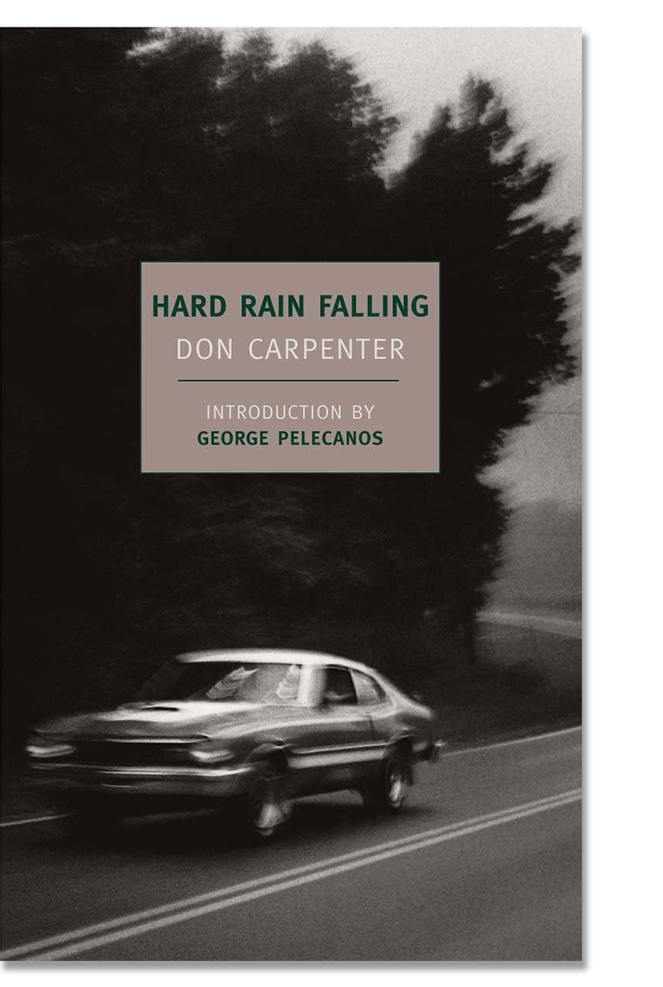American Poverty, Anger, and Moral Ambiguity
Reviewed:
by Don Carpenter
NYRB Classics, 336 pp., $17.95 (paper)
Publication Date: 8/16/22
Through raw storytelling, terse dialogue, and the callous, hard-nosed character Jack Levitt, Don Carpenter crafts a narrative conveying the pervasive influence of poverty and inequality on one’s life. Caught in the plight of poverty in the 1950s–60s, Carpenter thrusts readers into a gritty, unfair world while concurrently exploring man’s will and loneliness in a society that continues to kick him down. Along the fast-paced ride, deeply flawed delinquents draw us in with redeeming actions, coating this work in moral ambiguity.
Hard Rain Falling follows a cast of downtrodden characters, primarily Jack Levitt and Billy Lancing. Jack is a bruiser and runaway orphan attempting to get even with life: “He felt a stirring of anger, not at society for failing to have provided him with money; not at himself for his refusal to work; but at the situation itself, for existing.ˮ (pg. 64) This cantankerous attitude repeatedly leads him into unfortunate circumstances such as frequent fights, alcoholism, and eventually prison. It isn’t until Jack becomes cellmates with a former acquaintance, Billy, from his old days at the pool halls that his life reaches an inflection point. Following tragedy and the sacrifice of another’s life for his own, Jack is forced to come to terms with the limits of his control and accept the responsibilities that arise from marriage, fatherhood, and life more broadly.
Carpenter draws in readers with ease through clever, effective turns of phrase, such as “half the anger cooked out of him by the sunˮ and “hero of a cowardʼs nightmareˮ, but he cements this book’s legacy through his discursive reflections. At various points in the novel, the narrative seemingly breaks away from the scene and ascends to a remarkable level of philosophical discussion on pertinent questions of socio-economic inequality, nature vs. nurture, free will, and love. Unable to maintain control and break out of a downward spiral, Jack states: “How do you wake up? It was one thing to know that you had been asleep all your life, but something else to wake up from it, to find out you were really alive and it wasn't anybody's fault but your own. Of course that was the problem.ˮ (pg. 78) It is in these sections of the book that Carpenter transcends an enjoyable, though otherwise ordinary, crime novel and touches upon something timeless.
For me, the main element holding this book back from becoming a bona fide masterpiece is an unclear or loose plot. The early childhood days set a foundation for our main characters, Jack and Billy, and give us insight into who these men are; however, the first eighty or so pages have minimal impact on what makes this novel truly work, and the ending feels underdeveloped. That being said, this is definitively a character-driven story rather than a plot-driven one, and perhaps Carpenter felt he had said all he could through the turbulent life of Jack Levitt.
Carpenter strikes magic in this debut novel, depicting life in the 1950s–60s in a way rarely shown today, when post-WWII life is usually seen through rose-colored, nostalgic glasses. Readers are given a front-row seat to disadvantaged, impoverished society and are able to form their own interpretations of inequality, the prison system, and man’s freedom.
